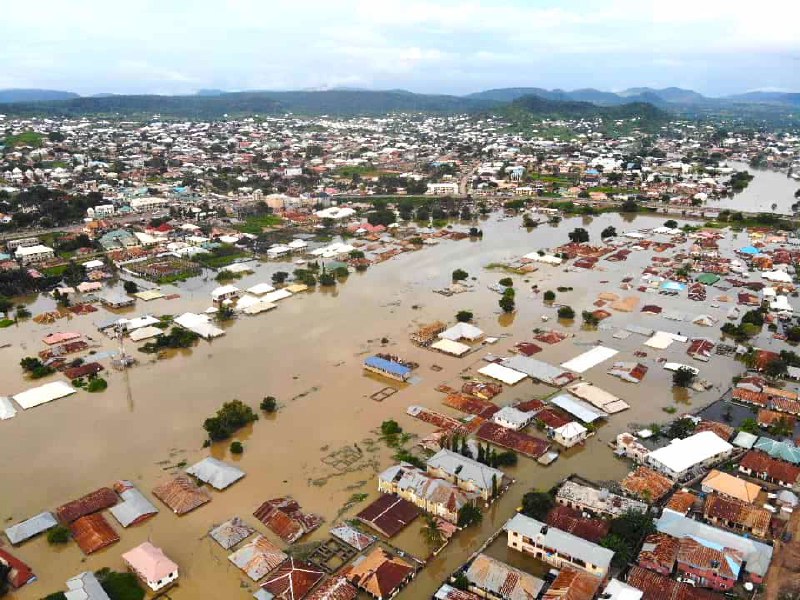…2.4 million displaced
According to the United Nations Office for the Coordination of Human Affairs, the floods have affected nearly 4.4 million people since July 2022.
This situation report was published in the OCHA Flash Update on Thursday, December 14, 2022. According to the research, at least 2.4 million people have been displaced across the country as a result of flooding. It further reported that more over half of the displaced people were Bayelsans.
“Floods have affected more than 4.4 million people across Nigeria since July, with over 2.4 million people displaced. Bayelsa State accounts for more than half of these.”
The report also addressed the degradation of farmlands, warning that this could lead to widespread food insecurity in the country.
It stated, “Some 676,000 hectares of farmland have been destroyed. The damage to the current harvest and limited access to income risks elevating emergency food insecurity in the coming months.”
ANAEDOONLINE.NG had earlier reported in November that the same agency had noted that more than 3.2m were affected by the floods. While it pegged the number of displaced persons at the time to 1.4m, it stressed that 4.1m people were at risk of severe food insecurity in the country.
Nigeria Floods: Pain, Agony And Loss As Disaster Leaves Residents Of Ogbaru, Anambra State Stranded
The agency advised that “Priority humanitarian needs remain shelter, access to clean water and sanitation, food, health care, and interventions to prevent or address disease outbreaks such as cholera.”
The situation report read, “As floodwaters recede people move back to their homes, partners are moving from an emergency response towards a recovery response. Many of the humanitarian needs remain the same, including shelter needs, interventions to prevent or address disease outbreaks such as cholera, providing access to food, clean water and sanitation, health care and other essentials.
“Government and humanitarian partners are also coordinating support for the restoration of basic services, including primary health care and water facilities, schools, and other critical infrastructure. Agricultural support – including replacing seeds and tools and other productive assets – is urgently needed to respond to crop losses during the harvest season and to help farmers resume their livelihoods.
“This is critical to address food security and, potentially, malnutrition. A third phase, including measures to improve early warning, preparedness and contingency planning, mitigation, and disaster risk reduction, as well as anticipatory action for next year, is being discussed with authorities to mitigate the worst effects and enhance people’s resilience to future disasters.”
Follow us on Facebook
Post Disclaimer
The opinions, beliefs and viewpoints expressed by the author and forum participants on this website do not necessarily reflect the opinions, beliefs and viewpoints of Anaedo Online or official policies of the Anaedo Online.

